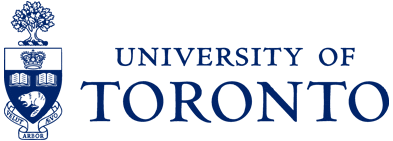Alberta: where tradition meets innovation
As smoke from this year’s fires casts a heavy yellow pall across the province, and voters get ready for one of the most significant elections in decades, Canadians and the world are seeing why Alberta—despite real challenges—is such a unique and desirable place to live and grow. The province has long been a place where rural traditions and natural resources blend with an innovative and world-facing commitment to sustainability, technology, and growth.
Cities like Calgary rank near the top of lists of liveable cities worldwide, while also making an impact as one of Canada’s most important emerging tech hubs. Across the prairie province, a young, educated, and diverse workforce attracts companies seeking great talent. With all of these factors in play, it’s easy to see why Alberta sits at the cusp of change when it comes to smart farming and digital tech. Nowhere is this more true than when it comes to harnessing the Internet of things (IoT) to serve Alberta’s revolution in digital and precision agriculture.
Interested? So are we! Palette Skills decided to take a closer look at how Alberta can leverage the IoT in the space of smart agriculture.
Getting on board with the Internet of things (IoT)
Let’s start by learning a little more about the Internet of things, or IoT. The term was invented back in 1999 by a computer engineer who proposed tracking products through supply chains using chips that could be followed by radio. Flash forward to today’s networks of wireless connectivity, and it’s easy to see how connecting objects, devices, products and people has never been easier.
So what are the advantages of connecting up millions of things together through the internet? And how can all of this connectivity drive the future of digital agriculture? To begin with, adding sensors to commodities and products means adding a level of digital intelligence to things that would otherwise be silent. Embedding things with sensors means adding real-time intelligence to production, manufacturing, and distribution. And one sector that stands to gain significantly from this technological revolution is agriculture. In Alberta, where the sector plays a vital role in the economy, leveraging the IoT can lead to increased efficiency, sustainability, and profitability for farmers.
Digital and precision agriculture is here and growing
Smart farming is not new in Alberta, but it’s safe to say that it’s growing, and quickly. That’s because by adopting technology that allows for sophisticated analytics, farmers in the province are able to monitor and manage their operations with unprecedented precision. For example, by deploying sensors throughout their fields, farmers can collect real-time data on soil moisture, temperature, humidity, and nutrient levels. This information can be combined with weather forecasts and historical data to optimize irrigation, fertilization, and pest control. The result? Improved crop yields with fewer resource inputs.
It’s a big deal, because in Alberta, as in the rest of the country, the costs of critical inputs like fertilizer are on the rise. As a result, policymakers and economists are highlighting the importance of adopting cutting-edge technologies on farms throughout the province. The good news is that farmers—and other players in the agribusiness sector—are listening, and doing. From the launch of a new Agrifood Innovation and Digital Hub in Calgary to a huge number of smart agriculture and food tech initiatives funded through Alberta Innovates, provincial players are coming together to mark Alberta as a national—and global—leader when it comes to precision farming and the adoption of IoT technologies. Let’s take a more detailed look at how the IoT can drive growth around the farm.
Livestock management
IoT technologies have the potential to revolutionize livestock management. For example, wearable tech like smart collars, ear tags, and implants equipped with sensors can help take the guesswork out of animal health and behavior, while GPS can help farmers know in real time where individual animals are located. These are just a few of the many layers of critical information that farmers will have at their disposal with the IoT. By leveraging IoT technology, Alberta farmers can enhance animal welfare and optimize their operations.
Supply chain optimization
The Covid crisis a few years ago revealed just how important an efficient and transparent supply chain is to Canadians, both as farmers and as consumers. Adopting the IoT promises to revolutionize the supply chain in agriculture by making it both more transparent and efficient. How will this work? Think of this way: by equipping trucks, storage facilities, and warehouses with IoT sensors and trackers, farmers can gain real-time insights into the location, condition, and temperature of their produce. This information enables better inventory management, reduces waste, and ensures that products are delivered to the market in optimal condition. After that, blockchain technology can be integrated with IoT devices to provide transparent records of the entire supply chain, boosting consumer trust and enabling traceability.
Environment and sustainability
Alberta’s agriculture industry is increasingly focused on sustainability, and on minimizing environmental impact. It’s another area where the IoT will be a critical tool moving forward. Already, farmers in the province are benefitting from real-time environmental monitoring that is driving data-driven decision-making. With IoT sensors to monitor air and water quality, soil erosion, and weather conditions, farmers can proactively address issues such as pollution, nutrient runoff, and climate-related risks. By leveraging IoT, Alberta’s farmers can optimize resource usage, minimize waste, and promote sustainable farming practices across the province.
Future of agriculture
The data generated by IoT devices gives farmers the opportunity to gain valuable insights through data analytics and predictive modeling. By employing advanced analytics tools and machine learning algorithms, farmers can make informed decisions about planting schedules, crop rotations, and disease prevention. Predictive analytics can help anticipate market trends, optimize pricing strategies, and streamline logistics. The combination of IoT and data analytics empowers farmers to maximize productivity and profitability while reducing risks. And with climate change already impacting the availability and productivity of arable land, there are certainly risks ahead.
The Automation and Digital Agriculture Specialist program from Palette Skills
With all of this take-up and activity, you might think that finding talent to implement the IoT across the agricultural sector in Alberta would be a tough ask. But national nonprofit Palette Skills has recently announced the launch of its highly successful Automation and Digital Agriculture Specialist program in Alberta. The Automation and Digital Agriculture Specialist Program recently completed its second last year in Saskatchewan, where Palette Skills leveraged its successful upskilling model and consulted industry partners, who helped determine highly sought-after skills.
This accelerated 8-week hybrid program is designed to get participants to the forefront of automation and digitization technologies in agricultural production and processing, including the IoT. After completing the program, participants will be ready to hit the ground with the tools they need to identify, manage, and implement technological solutions across the agri-food value chain in the Prairies. Want to find out more? The next program begins on June 12, and we want you to be a part of it!







